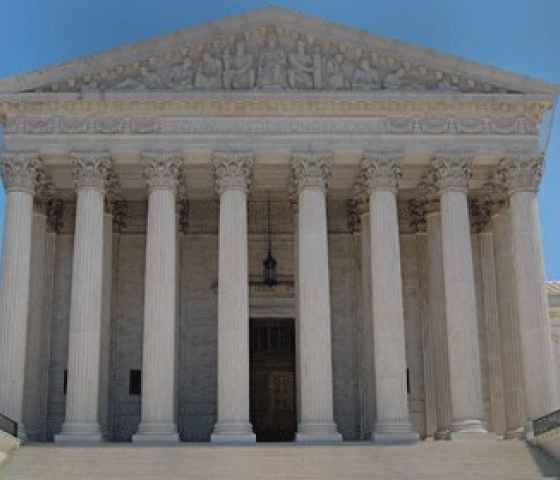httpv://www.youtube.com/watch?v=w2KdfENYpTU
TRANSCRIPT:
Good morning. My name is Aja Riggs. I’m 48 years old, and I live in Santa Fe.
In March, I heard a report on the radio about two doctors asking a court to clarify the status of aid in dying under New Mexico law. I am here today to announce that I am joining the case, and asking the court to clarify the ability of mentally competent, terminally ill patients to obtain aid in dying from their physician if they find their dying process unbearable.
Less than a year ago I learned that I have uterine cancer. That news came as a complete surprise. I had had some difficult symptoms, but none of them by themselves were abnormal. Eventually I had an ultrasound and that led to a biopsy. Then the phone call came telling me the biopsy showed cancer.
I was stunned. I remember thinking in those first moments, “Cancer: That’s a life-threatening illness.” But I was told it was the least aggressive kind, and most likely stage one. A hysterectomy would probably be all that I needed to cure it. And then I would be able to go on with my life.
Surgery on October 5th revealed a very different story. As I was coming out of anesthesia I asked what happened. I was told that the cancer had spread much further and was much more aggressive than we originally thought. Although I was still quite hazy, I understood that I was suddenly in a whole new ballpark and that my odds of long-term survival were now drastically reduced.
My doctor told me the cancer was stage 3-C, just one step away from Stage 4, and that I would need both radiation and chemotherapy.
At the end of December I had a biopsy of a lump that had grown during the time I was in chemo. That too turned out to be cancer. My doctor had taught me a lot by then, including that a tumor growing through chemo meant my chances for survival then looked even worse.
I’ve had some painful complications from the chemo, including a neutropenic immune system crash that sent me to the ER and required a few days in the hospital. That experience was pretty scary. That, and the amount of pain and intensive medical treatment I’ve had, has made me think: If this disease is going to end my life, I don’t know if I want to go to the very end with it. When I say the very end, I picture being in pain or mostly unconscious in a bed, with my loved ones around me in distress.
When I was younger I studied counseling and psychology; I did an internship at a hospice and thought a lot about the dying process. I thought how interesting it would be to be aware you were dying, to be conscious of that fact and able to say your goodbyes to people.
Since I got this diagnosis, I’ve been thinking again, very seriously, about how to have some control over the end of my life. When I heard about this case on the radio, it answered a dilemma I’d been struggling with: I felt I couldn’t talk about my death with the people closest to me. I was afraid to talk about it with my doctor. I thought if it came to choosing a peaceful death, I would have to do it all by myself to keep from implicating anyone else.
To end that sense of fear and isolation that people have — about one of the most important events in our lives — that’s why I think aid in dying should be an option for terminally ill patients.
I am still getting chemotherapy and other aggressive treatments. I still have a chance, even if it’s a small one. I have a good life and I want to keep living. But if the cancer is going to kill me, I want the peace of mind of knowing that I have some choice at the very end. If my dying process becomes unbearable I want my doctor to be able to prescribe medication I could take to avoid further suffering and have a peaceful death.
I understand people can’t really know how they’ll feel until they actually get there. So I don’t know for sure how I will feel as I get closer to death. But I do know I want to have the choice.
I hope that the courts will agree with the doctors and me that nothing in the law prevents a doctor from providing aid in dying.
